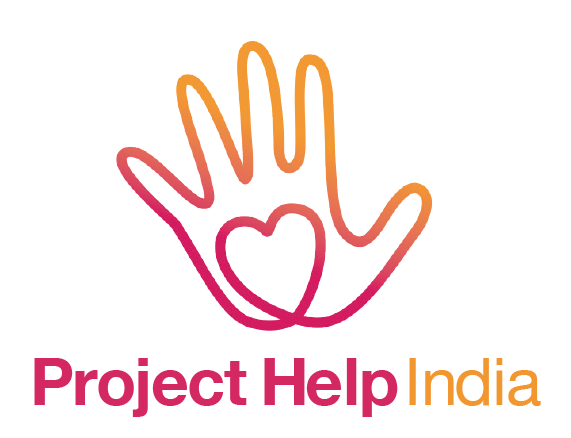The work of Project Help India, in partnership with the local police plays an important role in rescuing young women, girls and boys from trafficking. These children, many of whom live in the communities where we work are victims of sex exploitation, forced labour and even organ transplanting.
‘World Day Against Trafficking in Persons’
This important day is held every year on July 30 to raise awareness around the circumstances and conditions that enable trafficking and the impact of this on victims. The theme for this year for the World Day Against Trafficking in Persons is ‘Victims’ Voices Lead the Way’ highlighting the importance of learning from survivors of human trafficking as they have a huge role in identifying and saving other victims and supporting them on their way to rehabilitation, and ultimately eradicating this crime.
It is estimated that 6 400 000 children a year in India are victims of trafficking
This number is larger than the entire population of New Zealand!
· DASRA in a 2014 report stated that approximately 16 million women are victims of sex trafficking in India a year, with 40% of them are adolescents and children.
· It is estimated that 95% of trafficked persons in India are forced into prostitution. Many children are also exploited for forced labour, or have their organs (mostly their kidneys) removed.
· The ongoing COVID crisis in India has resulted in larger numbers of people impacted by poverty, and thus the number of women and children trafficked has increased.
· More than 70 per cent of victims are illiterate and 50 per cent of them have a family income of less than $1 (USD) per day.
According to the UN, globally one in every three victims detected is a child. Over the past 15 years the number of children among detected trafficking victims has tripled, while the share of boys has increased five times. Approximately 90 per cent of those trafficked belong to the most disadvantaged and marginalised groups in society.
Many victims of human trafficking have traumatic post-rescue experiences during interviews and legal proceedings. In their attempts to get help, they often experience ignorance, misunderstanding, victimisation and punishment for offences their traffickers had them commit. Particularly sad, is the rejection from family, neighbours and community that many victims when they return to their home. This happens in India and Bangladesh where many girls are labelled as dirty and therefore are not regarded as eligible for marriage. Many victims return to their life of trafficking as they have no other options. This is where Project Help India has an important role in the rescuing ‘process’ as we work alongside not just the victims, but with their parents, family and community, to achieve healing and positive rehabilitation. Our school communities within the slums provide the context for this to happen, and are built on trust and growing respectful relationships.
A PROJECT HELP STORY
Currently Project Help India is frequently working and meeting with the Human Trafficking Police Unit in Uttarakhand. Earlier this year we discovered that 5 or 6 kids were sold interstate under a deal from their family members who needed money for their drug and alcohol addictions. The kids were rescued and we provided counselling.
Raj* a boy from our Project Help India Disability Centre belongs to a very poor and needy family. Their condition is so bad they didn't have anything to eat as meal and they even don't have many things needed for day-to-day life. Their house only has one room. They don't have proper space to sleep and they don't have access to clean water, a toilet or bathroom. Raj has a younger brother, who he is not a student in any of our centres. One day Raj's mother came running here to the Project Help India office crying to Amit sir. She told Amit the whole story -that they are suffering. Due to a lack of money Raj’s father who is an alcoholic was going to sell his younger brother to some strange people who had been visiting the house. They were making a deal to sell his son.
We were all very frightened when we heard this and urgently made action against those people. We contacted the police who interrogated the father. He confessed that due to his addiction he was going to sell his boy to the strangers. The matter is currently with the police.
Here in Uttarakhand, we see a lot of matters and these cases are especially common in the hilly areas of Uttarakhand where there's lack of education, money and the people have many types of addictions. Last but not least many people make deals to sell their children for money to satisfy their addictions. Project Help India is working educating parents and children about drug addiction and specifically human trafficking.
* name changed to protect his privacy
Organ Trafficking
Aside from sex trafficking, India is also riddled with the problem of trafficking for organs. In 2007, the World Health Organisation described India as a “commonly known organ-exporting country”. It said organs from local donors were regularly sold and transplanted to foreigners even though the Human Organ Transplantation Act of 1994 banned organ trade in India. However, the problem hasn’t gone away. In July 2019, The Hindu uncovered an illegal organ trade racket in Delhi, including for kidney and liver, and involved police personnel, doctors and hospital administration staff.
A PROJECT HELP STORY
The illegal organ trade occurs in Kotdwara which is known to be a centre for this dark and sinister industry. On numerous occasions our Director Amit has worked with the police to uncover situations where slum children are vulnerable and preyed upon, especially when their parents have no income. In 2019 Amit travelled with the police to Punjab where they rescued a number of children. Last year he rescued a child who was sold by her parents and taken to the neighbouring state of Uttar Pradesh.

